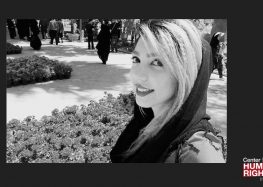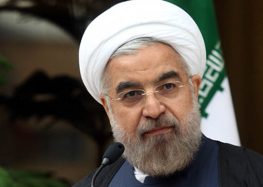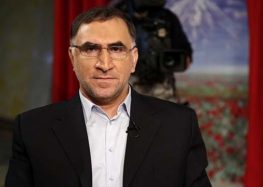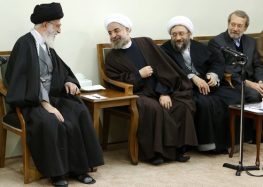Most Yarsani Religious Minority Candidates Disqualified From Iran’s 2017 Councils Elections
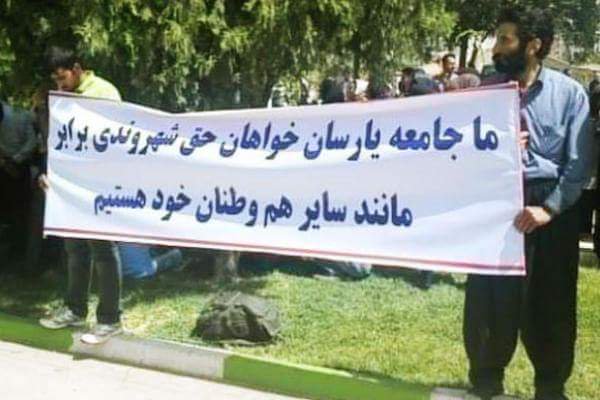
The majority of Yarsani candidates seeking seats in Iran’s May 2017 elections for local councils have been disqualified, the faith’s spokesman, Siavash Hayati, told the Center for Human Rights in Iran (CHRI).
“In Eslamabad-e Gharb (Kermanshah Province), Mr. Farzad Almasi wanted to run in the city council elections, but he was disqualified because of his civil society activities and protests against the trampled rights of the Yarsan,” said Hayati. “Now we understand that nothing has changed in the way we are treated.”
The Yarsan spokesman told CHRI that in Hashtgerd, northeast of Tehran in Alborz Province, 28 of the faith’s 30 candidates were rejected by the local election monitoring committee.
“Hashtgerd has a significant population of Yarsan followers, and in the last election, they won three seats in the city council,” he said. “But this year, even those Yarsan who did not reveal their faith were discriminated against and rejected.”
Known as A’een Yari, Kish Haghighat, Tayefeh San, Aliollahi and Kakaee, Yarsan followers in Iran live mostly in the country’s northwestern Kurdish-populated regions. According to the Yarsan Democratic Organization, the religious group “took shape in the west of Iran in the 14th century.”
The Yarsan Community Civil Activists Society lists the “preservation of religious identity,” “achieving national reconciliation,” “seeking freedom,” “seeking equality among all citizens” and “ending all forms of discriminations” as its objectives.
The group has vowed to work peacefully within the framework of Iran’s Constitution as well as the Universal Declaration for Human Rights.
The election monitoring committees that are in charge of vetting prospective candidates for Iran’s elections for local city and village councils are set up by Parliament.
By law, they should approve any adult citizen who has no prior criminal record and believes in one of the Constitution’s officially recognized religions (Islam, Christianity, Judaism and Zoroastrianism).
However, the committees’ decisions can vary based on the conservative, reformist, moderate or independent make-up of each committee.
“(President Hassan) Rouhani has not been able make a difference for us,” the Yarsan spokesman told CHRI. “Maybe he didn’t have the will to do it. But the more important problem is the Constitution, where the root of many of these discriminatory policies lies. He may not have the power to change that.”
According to Article 13 of the Constitution: “Zoroastrian, Jewish, and Christian Iranians are the only recognized religious minorities, who, within the limits of the law, are free to perform their religious rites and ceremonies, and to act according to their own canon in matters of personal affairs and religious education.”
The leadership of the Yarsan faith has written to Supreme Leader Ali Khamenei seeking his blessing for a constitutional amendment that would recognize their religion.
“As members of a civic organization, we wrote a letter to the supreme leader in March 2015 because we believe that the discrimination against our community is rooted in the Constitution and the only person with the power to change it is the supreme leader,” said Hayati in an interview with CHRI in June 2016. “It has been more than 14 months and we still have not received a reply, so we sent him the same letter again.”
“In our letter we mentioned 10 of the most important violations of the rights of Yarsan followers, especially the lack of legal recognition in the Constitution for us as a religious minority. That’s why our rights are denied,” Hayati told CHRI at the time.
“On the one hand, officials consider our faith as a branch of Islam and Shi’ism and yet we don’t have the same rights as Muslims and Shias,” he added. “We cannot get a job unless we deny our identity. We have no representatives in Parliament or any one in senior [governmental] management positions. We can’t even be a school master without denying who we are.”
In July 2015, Saeed Heydari-Tayeb, then member of Parliament from Kermanshah where many Yarsanis live, filed a formal complaint on the suppression of the rights of the Yarsani people.
“Even though Kermanshah Province has a large population of the followers of the Yarsan minority, their basic rights as citizens are being denied when they seek jobs or face judges,” he wrote. “Their evidence in court is not considered admissible.”
Three Yarsanis, Hassan Razavi, Nikmard Taheri and Mohammad Ghanbari, died from severe burns after they carried out self-emulations in public between June and August 2013 to protest the discrimination of their faith.

